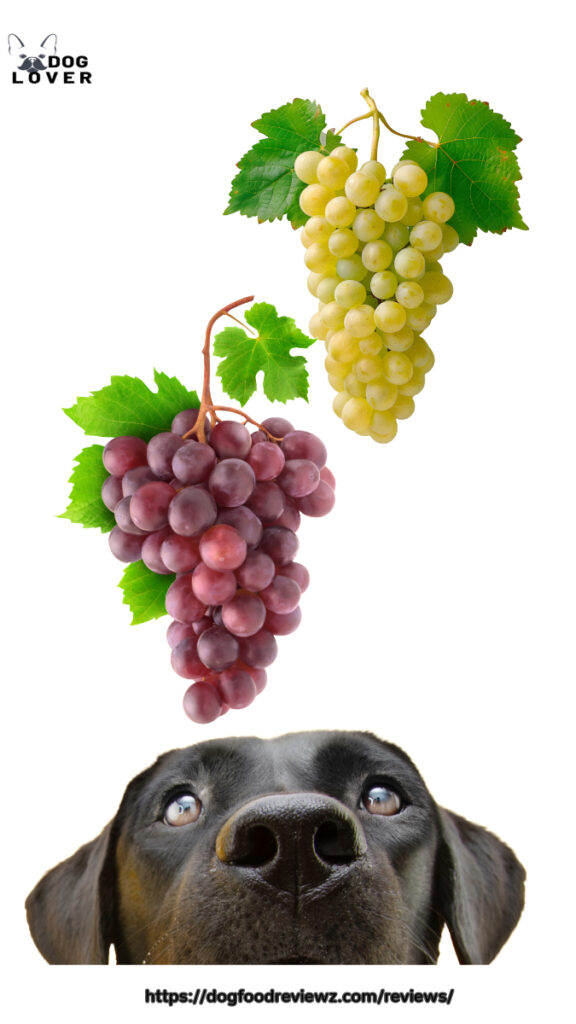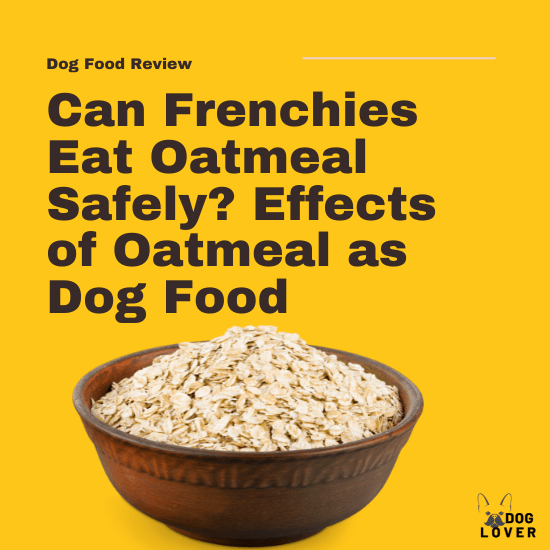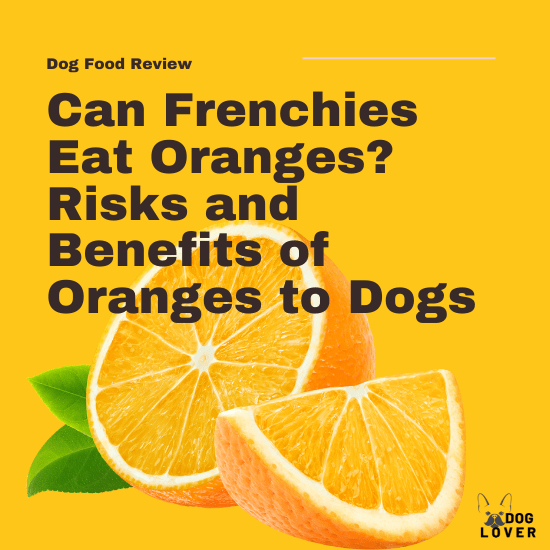Can dogs eat grapes?
Grapes are a tasty and nutritious fruit for humans, but unfortunately, they are highly toxic to dogs.
No amount of grapes is safe for your canine friend, as they can lead to severe kidney damage or even death.
The exact cause of this toxicity remains unclear, but it’s believed to be related to a compound found in the fruit.
Grapes, whether fresh, dried (raisins), or any other form, should be kept away from dogs at all costs.

Why are grapes toxic to dogs?
The specific substance responsible for grape toxicity in dogs isn’t well understood, but it’s known that even a small amount of grapes can be harmful.
Some dogs are more sensitive to grapes than others, and the toxic dose can vary.
Symptoms of grape poisoning can include vomiting, lethargy, loss of appetite, and diarrhea. In severe cases, it can lead to kidney failure, which may be fatal.
Can dogs eat grapes stems, skin, or leaves?
- Grape Stems: Like the fruit itself, grape stems are also toxic to dogs. They contain the same harmful substances that can cause kidney failure, making them just as dangerous. Be sure to dispose of any grape stems properly to prevent your dog from consuming them.
- Grape Skin: The skin of a grape contains the same toxins that make the fruit harmful. It can cause kidney issues and other health problems, so it should never be given to your dog.
- Grape Leaves: Grape leaves, like the fruit and stems, are toxic due to a compound called cyanide. This can cause poisoning and even death if ingested, so it’s essential to keep grape plants out of your dog’s reach.
What to do if your dog eats grapes
If you suspect that your dog has eaten grapes or any part of a grape plant, immediate action is necessary.
Contact your vet right away. Depending on the situation, the vet may induce vomiting to prevent further absorption of the toxins.
Never attempt to make your dog vomit if they are showing signs of distress, such as difficulty breathing or unconsciousness. Always consult with a veterinarian in such cases.
Can dogs eat grapes jelly, raisins, or other grape products?
- Grape Jelly: Grape jelly contains grape flavoring, which is just as toxic as the whole fruit. It also contains high levels of sugar, which is not healthy for dogs, making it unsafe for them to consume.
- Raisins: Raisins are dried grapes, and like fresh grapes, they are highly toxic to dogs. Even small amounts of raisins can cause kidney failure. Symptoms of raisin poisoning include vomiting, diarrhea, lethargy, and excessive thirst. If your dog has eaten raisins, seek immediate veterinary help.
Safer Fruits for Dogs
While grapes are off-limits, there are many other fruits that can be safely enjoyed by your dog in moderation:
Strawberries: Rich in fiber, antioxidants, and vitamin C, strawberries are a healthy and low-calorie treat for dogs. They can support your dog’s immune health and promote skin and coat health. Just be sure to feed them in moderation and avoid processed versions that may contain harmful ingredients like xylitol.
Apples: Apples are low-calorie and packed with essential nutrients like vitamins A, C, and K. They can help freshen your dog’s breath and provide fiber for digestion. However, avoid feeding your dog the seeds or core, as they contain cyanide, which is toxic to dogs.
Pineapple: Another safe fruit for dogs, pineapple is rich in vitamins and minerals. It can aid digestion and provide your dog with a tasty, refreshing treat. As with all fruits, feed pineapple in moderation.
What dog foods to avoid
Since grapes and raisins are toxic to dogs, any dog food that contains these ingredients should be avoided.
Look for dog foods with safer alternatives, such as apples, berries, and other non-toxic fruits and vegetables.
Conclusion
While grapes may be a delicious snack for humans, they pose a serious health risk to dogs.
Even small amounts can cause kidney failure, and no part of the grape plant is safe for dogs to consume.
If your dog accidentally eats grapes or any related products like raisins or grape jelly, seek veterinary help immediately.
Always ensure that your dog’s diet consists of safe, healthy treats, such as apples, strawberries, and pineapples, to avoid harmful health consequences.


